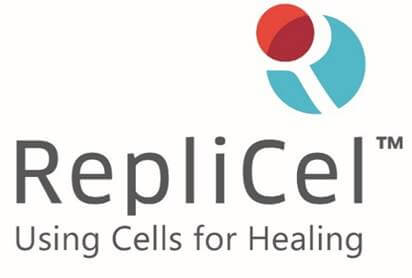
RepliCel Life Sciences Inc (TSXV:RP)
RepliCel is a regenerative medicine company developing autologous cell therapies that address diseases caused by a deficit of healthy cells required for normal healing and function.

Eight biotechs launched initial public offerings (IPO) in May, including Hancock Jaffe Laboratories, Iterum Therapeutics, Kiniksa Pharmaceuticals and others. April wasn’t as hot a month, with only two, MorphoSys AG and Surface Oncology. But June is off to a good start with two.
Neon Therapeutics, based in Cambridge, Massachusetts, has fileda preliminary prospectus for its IPO. It hopes to raise $115 million and expects to list on the Nasdaq under the NTGN symbols.
The company works in the field of neoantigen-targeted therapies, a new component of immuno-oncology. The company launched in October 2015 with $55 million Series A financing from Third Rock, Clal Biotechnology Industries and Access Industries.
The proceeds of the IP will be used to fund the ongoing development of NEO-PV-01 in two clinical trials, NT-001 and NT-002. It will also be used partially to prep for more clinical trials, including NT-003 and NT-004, and to fund preclinical and research programs. They include: NEO-PV-01 in multiple clinical trials, NEO-PTC-01 and NEON/SELECT product candidates into clinical trials, development of its RECON Bioinformatics Engine, and expanded manufacturing capabilities.
On May 8, Neon announced it had treated the first patient in a clinical trial to study its personal neoantigen vaccine, NEO-PV-01 in combination with Merck & Company’s anti-PD-1 drug, Keytruda (pembrolizumab) with chemotherapy. NEO-PV-01 is Neon’s most advanced product, a personal cancer vaccine designed uniquely for each patient based on DNA mutations from the patient’s tumor.
Translate Bio has filed with the U.S. Securities and Exchange Commission (SEC) for an IPO of $115 million. Based in Lexington, Massachusetts, Translate Bio was founded in 2011. It plans to list on the Nasdaq under the TBIO symbol.
On April 12, Translate Bio announced that the U.S. Food and Drug Administration (FDA) had given the company the go-ahead to begin a first-in-human clinical trial of MRT5005 in patients with cystic fibrosis (CF). The company expects to begin dosing patients in the Phase I/II clinical trial in mid-2018.
MRT5005 is an mRNA product candidate designed to treat the underlying cause of CF. It is designed to deliver mRNA that encodes fully functional CF transmembrane conductance regulator (CFTR) protein to the lung epithelial cells via nebulization. Unlike many CF treatments that focus on specific mutations, MRT5005 is being developed to treat all CF patients regardless of the mutation.
The trial is a randomized, double-blind, placebo-controlled Phase I/II trial that will enroll at least 32 adult CF patients who have at least one Class I or Class II mutation. The primary endpoint will be safety and tolerability of single and multiple escalating doses of the drug administered by nebulization. One of the measurements will be forced expiratory volume in one second (FEV1). It is being conducted in collaboration with the Cystic Fibrosis Foundation Therapeutics Development Network.
According to the SEC filing, the company is also developing MRT5201 for patients with OTC deficiency, a metabolic liver enzyme disorder that results from a mutation in the OTC gene. The company stated, “OTC deficiency is the most common urea cycle disorder. This enzyme is an intracellular protein necessary for preventing the accumulation of ammonia, a normal byproduct of protein breakdown. When the enzyme is defective or absent, high levels of ammonia accumulate in the blood, which can cause serious and irreversible neurological damage. The incident of OTC deficiency is estimated to be 1 in 56,500 live births in the United States.”
Source: Biospace